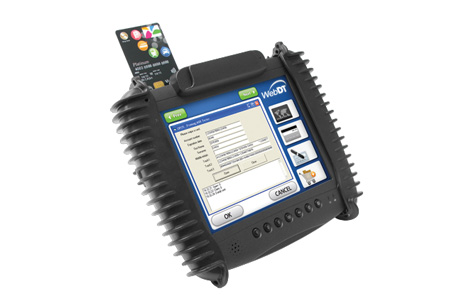Can VARs Make Money On Mobile POS?
By Brian Albright, Business Solutions magazine
A VAR extends an existing POS solution with tablet computers, which amounts to a $20,000 project.
Mobile POS solutions can present both opportunities and challenges to POS VARs. Expanding an existing solution using tablet computers may provide significant add-on revenue from current clients, but many customers are interested in rolling out low-margin, consumer-grade tablet devices like the iPad, which may not represent a sustainable business model for resellers.
 Infinity POS, however, recently put together a mobile POS package that not only represented a substantial sale, but also positioned the company to bring in additional revenue by offering the same solution to other existing POS clients. The client, Hope College in Holland, MI, is a long-time customer, and Infinity installed and has supported the school’s food service POS system from Micros Systems for several years.
Infinity POS, however, recently put together a mobile POS package that not only represented a substantial sale, but also positioned the company to bring in additional revenue by offering the same solution to other existing POS clients. The client, Hope College in Holland, MI, is a long-time customer, and Infinity installed and has supported the school’s food service POS system from Micros Systems for several years.
Last year, the school contacted Infinity looking for advice. “They approached us and asked if we could recommend a solution to help them set up a wireless POS system at their field house,” says Infinity president Robert Foster. “The contact was actually asking me to just recommend another vendor at first. We brainstormed on it and came up with a mobile solution that would tie directly into the existing POS system and student meal card system.”
The food service organization could already accept both credit cards and student meal cards at the dining halls, but saw an opportunity to boost sales at locations where they traditionally accepted cash only. “They had a strategic business need to increase their food service revenue,” Foster says. “They had ‘brick-and-mortar’ dining halls, but there were plenty of other venues on campus like the field house and other areas where they didn’t want to just sell for cash, but they didn’t want to incur the expense of setting up fixed POS terminals, because they only made sales during special events.”
User Interface Provides Flexibility
The college already had a campuswide wireless LAN in place, which Foster says greatly simplified the solution design. Foster and his team came up with a system that used Micros’ existing mobile POS product and rugged POS tablet computers, customizing the software so that it could be deployed in multiple environments with different menus and pricing options. “Since we were just extending the existing Micros system, the users were already trained,” Foster says.
For the hardware, Infinity selected the DT362 POS tablet from DT Research. “Those units have built-in mag-stripe readers, and the batteries can be hot-swapped,” Foster says. The college has deployed six of the tablets so far, although Foster says they will likely purchase additional units as demand increases.
Foster says he selected the DT362 units rather than consumer- grade tablets because they could be locked down to achieve PCI compliance. With the DT362, Foster says the built-in card reader was already in spec with the regulations. Foster also believes that iPad-style devices are not sustainable for either the user or the VAR in these types of deployments. “Consumer devices will ultimately cost a customer more than commercial-grade product,” Foster says. “A dealer has to have a sustainable business model, but we have to embrace mobility, too. Serviceability is an important factor. If you break an iPad, you have to basically throw it away and replace it. With the types of tablets we’re using, we have full serviceability of that product. So even though it’s mobile, it fits our traditional business model in that I can stock it, I can repair it in-house, and I can provide same-day replacement service or a loaner if necessary. And there’s margin in that.”
Revenue Boost For VAR And Customer
The installation took about a month and was completed at the beginning of the school year in 2012. “Originally, this was just going to be at the field house. Once they saw how well it worked, they asked if they could use it at the hockey rink or out in a parking lot.”
Because of the relative ease of deployment and the fact that costs were lower than installing fixed POS stations at each venue, Foster says the return on investment was selfevident. “When you look at the amount of revenue they could generate without spending a fortune to create terminals for the field house or hockey rink, it was a no-brainer,” Foster says. For Infinity, this represented a $20,000 add-on sale, one that also showed commercial viability for customers in other markets. “There’s a huge opportunity for POS dealers to leverage their existing knowledge and existing systems and create new revenue,” Foster concludes.
